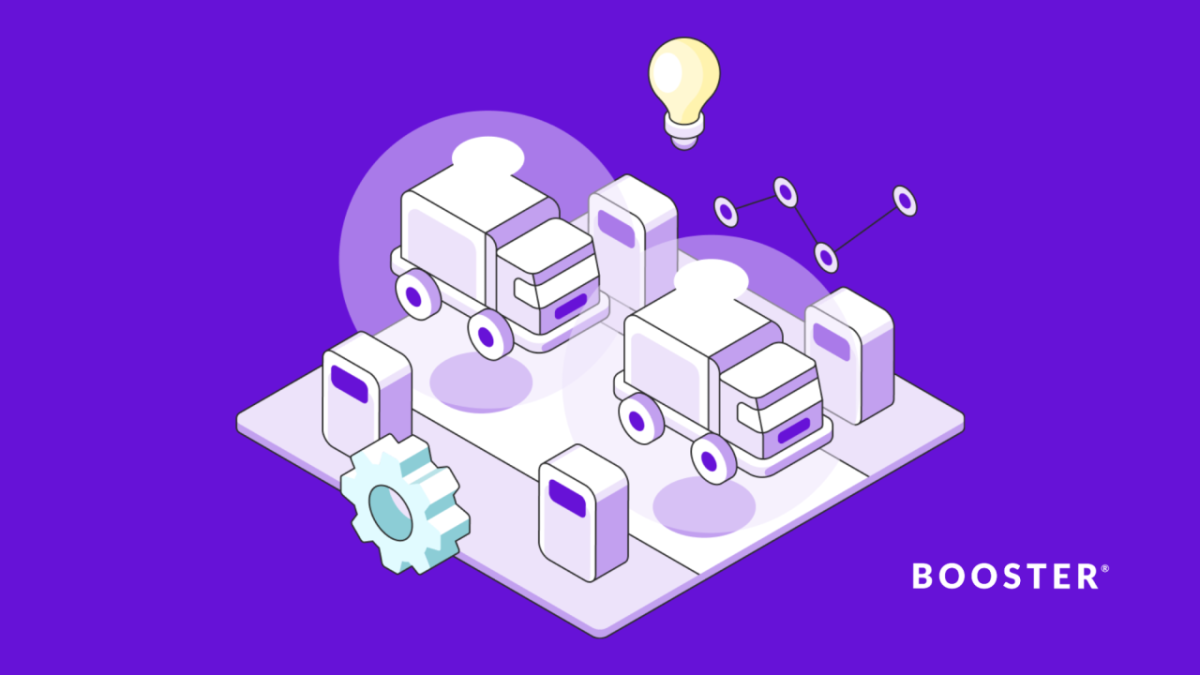Emerging Technologies and Best Practices From Booster

As the world searches for solutions to clean up legacy industries, emerging technologies and best practices are paving the way for a future of sustainable fueling. Among these innovations, Booster’s mobile fuel delivery platform delivers conventional and sustainable fuels directly to fleets with a solution that is better for you, your community, and the planet.
In the modern landscape, sustainability is more than just environmental stewardship; it also includes the longevity of your business and the efficacy of your operations to steadily hit goals over the long term. As businesses look for new and innovative ways to reduce their carbon footprints, mobile fuel delivery arises as the star solution for sustainable fueling. Booster is leading the charge in this area by revolutionizing the way fuel energy is delivered to businesses and individuals.
As fleets adopt innovative solutions to boost sustainability, Booster’s flexible, adaptable service provides the fueling system to help fleets succeed. Here are 5 emerging technologies and best practices that set Booster apart from the rest:
1. Infrastructure-light mobile fueling
As with any major industrial shift, the energy transition will take decades to complete, in part because it will require significant development of infrastructure. This is one reason mobile fueling is uniquely positioned to support the development and adoption of sustainable and zero-emissions transportation technologies, due to its adaptable, infrastructure-light nature.
Booster's approach to fueling is simple and straightforward. Instead of requiring customers to visit gas stations, Booster brings the fuel directly to their location. This approach not only saves time but also reduces traffic congestion and greenhouse gas emissions.
While traditional gas stations require significant up-front investment and long-term commitment, mobile fueling is uniquely positioned to support the development and adoption of sustainable and zero-emissions transportation technologies. With Booster's mobile fueling services, fleets can access a range of fuel types without the need for a significant investment or long-term commitment.
2. The highest safety standards
Though our mission seeks to bring sustainable fueling solutions to fleets everywhere, we recognize that true sustainability must prioritize the safety and longevity of our team members and the communities we serve.
With this recognition in mind, we’ve designed Booster's sustainable approach to fueling to operate within robust safety protocols. These protocols ensure that fueling is conducted safely and efficiently, minimizing the risk of accidents or spills. Additionally, Booster uses smart tanker technology to ensure the fueling process is as efficient, effective, and safe as possible. This technology helps to reduce fuel waste, ensures that the correct amount of fuel is dispensed at each location, and includes overturn and spill protection.
By prioritizing safety and efficiency, Booster is making significant strides toward a sustainable future in the fueling industry.
3. A range of sustainable fuel offerings
Booster offers a range of sustainable fuels to lower emissions for existing internal combustion engine vehicles, including renewable fuels like renewable diesel. These fuels are often made from renewable and abundant waste feedstocks and have low or no lifecycle emissions, making them a cleaner alternative to conventional fossil fuels.
Renewable diesel is an environmentally friendly alternative to traditional diesel fuel. It is produced from renewable sources, such as plant oils, animal fats, and waste materials, and can lower emissions by up to 85%. Renewable diesel is a cleaner and more sustainable alternative to traditional diesel fuel, making it an ideal choice for businesses that want to reduce their carbon footprint.
4. Innovative Data Insights
To improve customer satisfaction and manage its fueling operations, Booster makes use of cutting-edge data insights. Its own technology platform — which gathers and examines data on gas consumption, delivery patterns, and consumer behaviors — is one of the main ways they accomplish this. Booster may increase efficiency and cut waste by using this data to drive decisions about route optimization, planning scheme, and inventory control.
5. Reduced Emissions
Fleet managers looking to lower emissions with a less expensive, more immediate solution than zero-emission vehicles may consider ditching the gas station in favor of mobile fueling.
According to GeoTab, the average fleet vehicle drives approximately 2.2 off-route miles per gas station trip. At an average of 15.2 gas station visits monthly, the emissions from this non-essential travel can be a significant addition to overall fleet emissions.
By contrast, mobile fuel delivery can help fleets reduce carbon emissions by thousands of pounds annually. This model reduces emissions in two ways: 1) by reducing overall miles driven (and thus emissions generated), and 2) through reductions realized by the adoption of sustainable alternative fuels. Booster service reduces 296 lbs of carbon emissions per vehicle per year, or 4,450 lbs of CO2 annually for a fleet of 15 vehicles.
The Future of Sustainable Fueling
As a company committed to responsible environmental, social, and governance priorities not just in our company but in the communities we serve, Booster's sustainability efforts extend beyond its business model. We are committed to reducing environmental impact by focusing sustainability efforts in a range of areas. Here are just some of our commitments to sustainability:
- Booster actively participates in the Campaign for Clean Air's California Clean Air Day Pledge and aims for 100% corporate participation.
- Booster's fleet of Smart Tankers—proprietary energy delivery vehicles—is supported by telematics & IoT connectivity to provide actionable data on efficiency and consumption.
- Nearly all of Booster's fleet clients have switched to Renewable Diesel in markets where it is available. This sustainable alternative fuel offers up to 85% fewer lifecycle emissions than petroleum diesel.
As we look to the future of sustainable fueling, it is important to consider not only the environmental impact of our choices but also the long-term sustainability of our businesses and operations. With emerging technologies and best practices, Booster is paving the way toward a better future for fueling.

